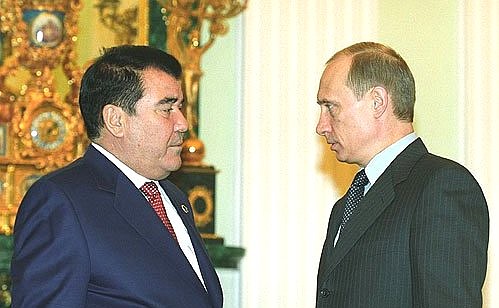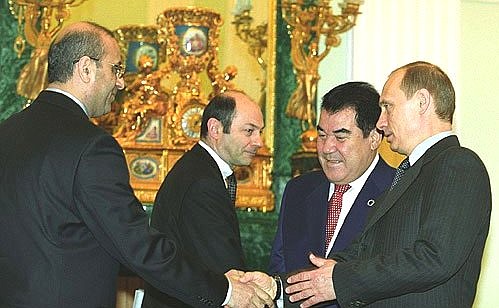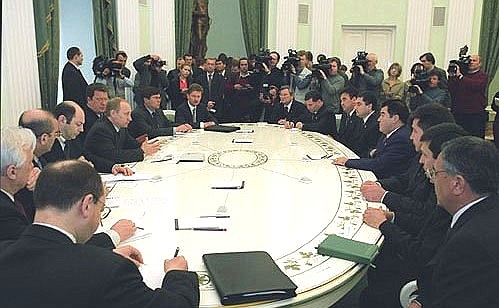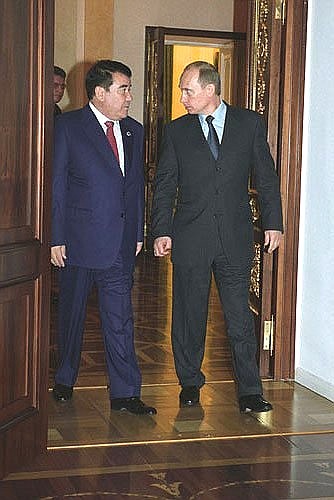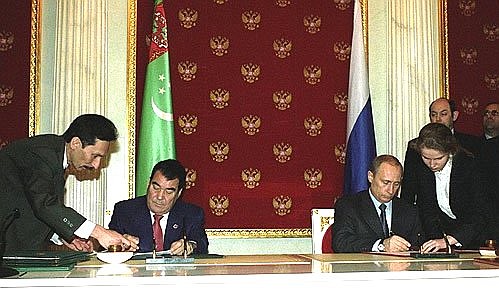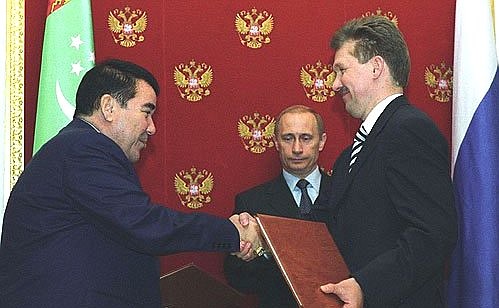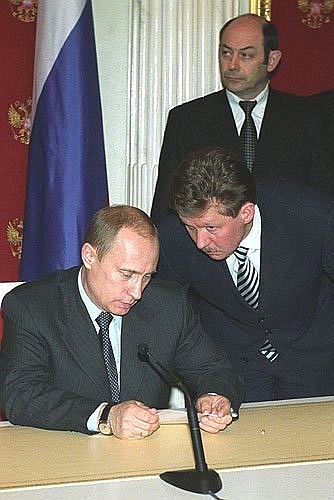Opening the talks, President Putin said that the country’s top leadership was doing everything in its power to help the survivors and families of victims of a fire in a boarding school for deaf and dumb children in Makhachkala.
President Niyazov, in turn, expressed sympathy for the victims’ families.
Mr Putin and Mr Niyazov discussed in detail the coordination of efforts in the economy, particularly energy.
The negotiations ended with the signing of a number of documents, including an agreement on gas cooperation, an agreement on security cooperation, and a protocol on the exchange of instruments of ratification of the Treaty of Friendship and Cooperation between the two countries.
The agreement on gas cooperation is signed for 25 years and provides for Russia’s purchase of Turkmen gas, modernisation and building of gas transport networks, joint scientific and technological work, and Russian participation in the development of gas deposits in Turkmenistan.
According to the document, Russia will purchase 60–70 billion cubic metres of gas in 2007 and 70–80 billion cubic metres in 2009–2028.
Under the security cooperation agreement, Russia and Turkmenistan will jointly settle regional conflicts and other crisis situations and fight international terrorism, illicit drug trafficking, and illegal migration. The agreement gave priority to ecological safety and environmental protection cooperation.
The sides agreed to coordinate their foreign policy moves on security matters and promote the peace-making role of the UN.
Mr Niyazov and Mr Miller also signed a long-term contract between Gazprom and the Turkmenneftegaz state corporation.
President Putin and President Niyazov came to the conclusion that it was advisable to end the treaty on dual citizenship.
In a statement to the press following the negotiations, President Putin noted that the Treaty of Friendship and Cooperation, now in effect, laid down firm foundations for Russian-Turkmen relations.
The agreement on gas cooperation could give impetus to economic coordination in other areas.
The agreement on security cooperation would make the two countries’ efforts to meet the challenges and threats of the modern world more systemic and effective.
